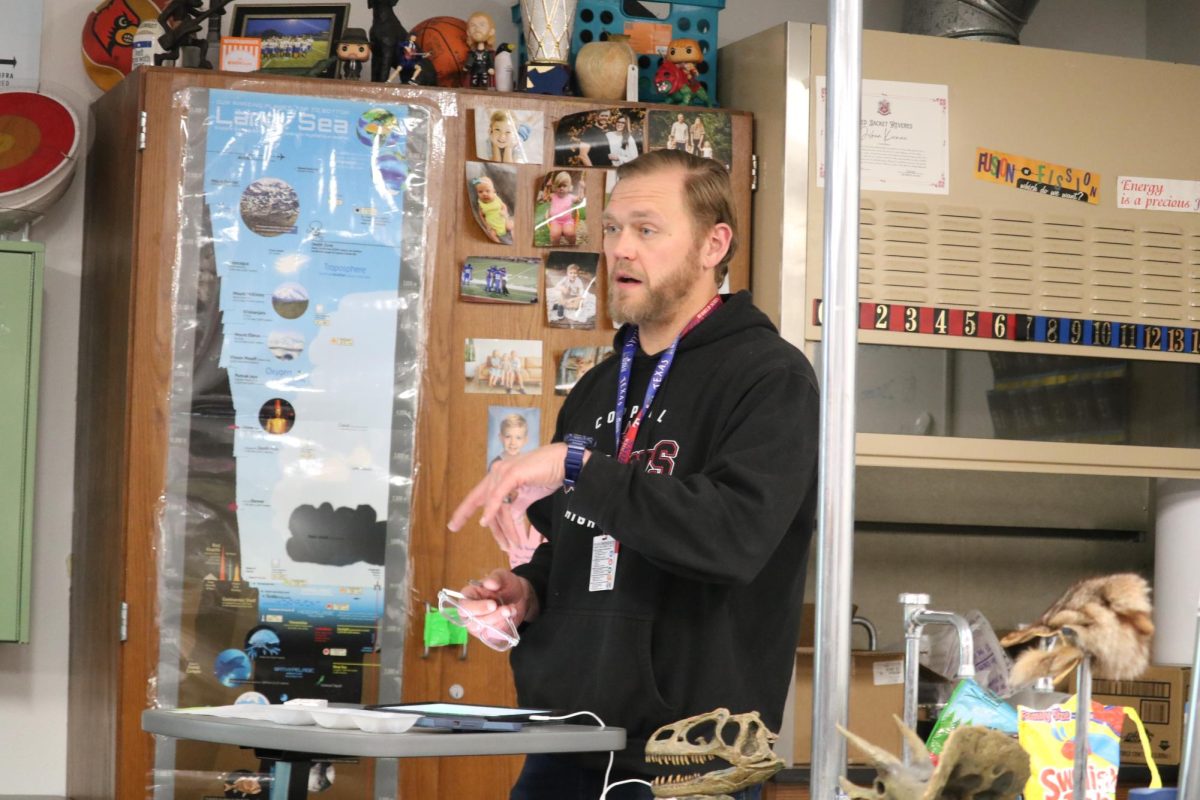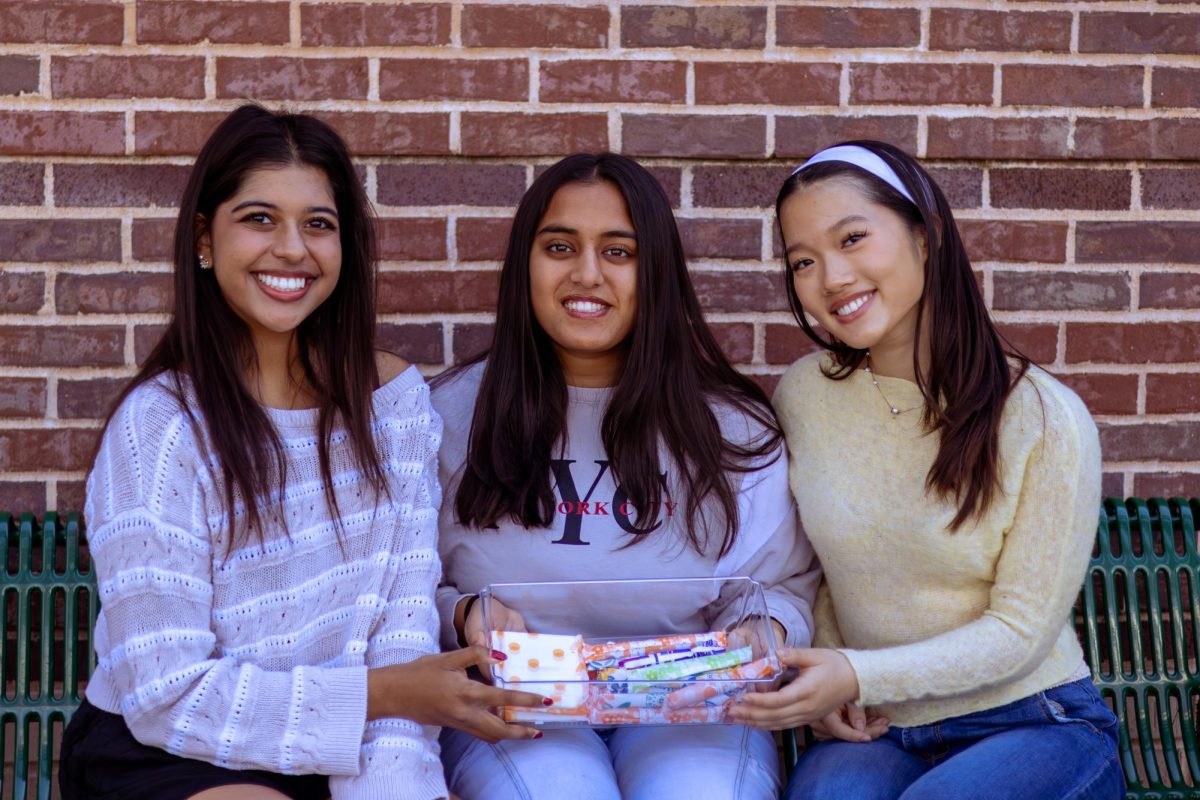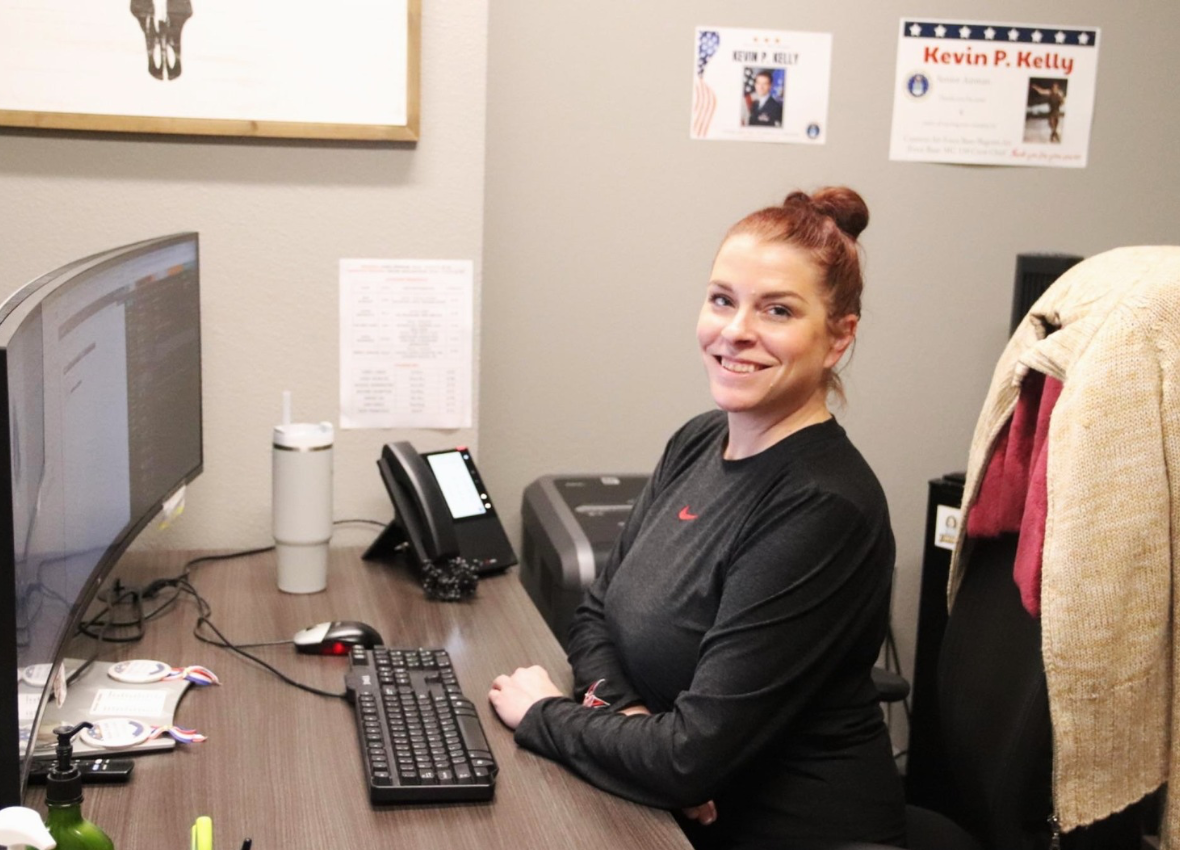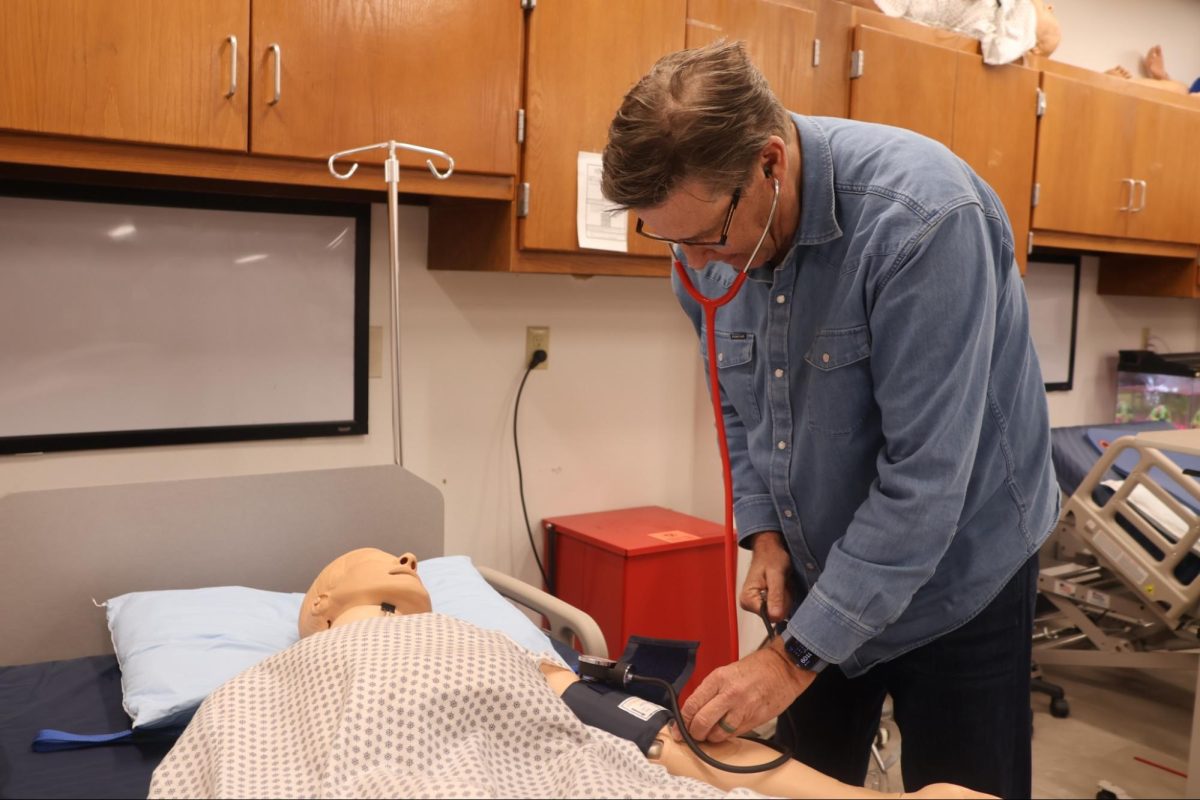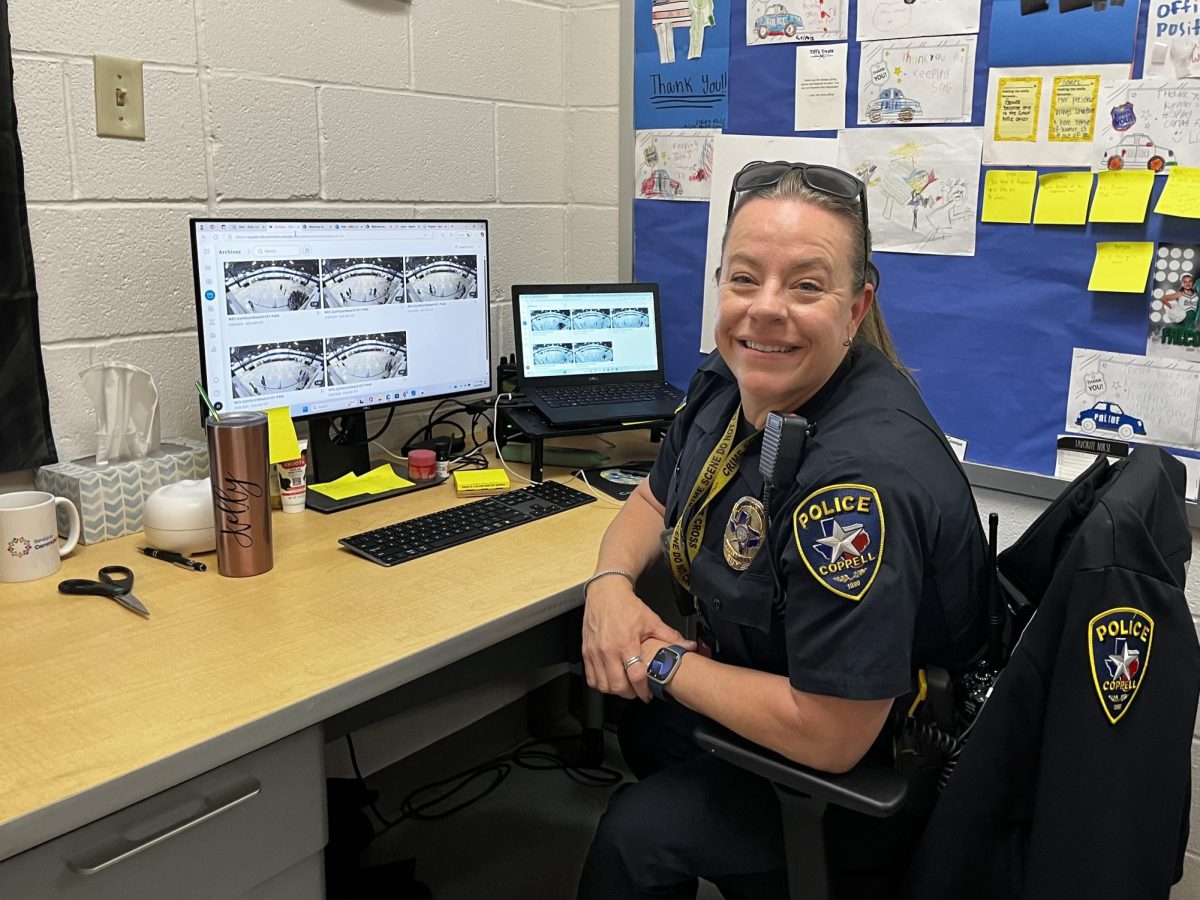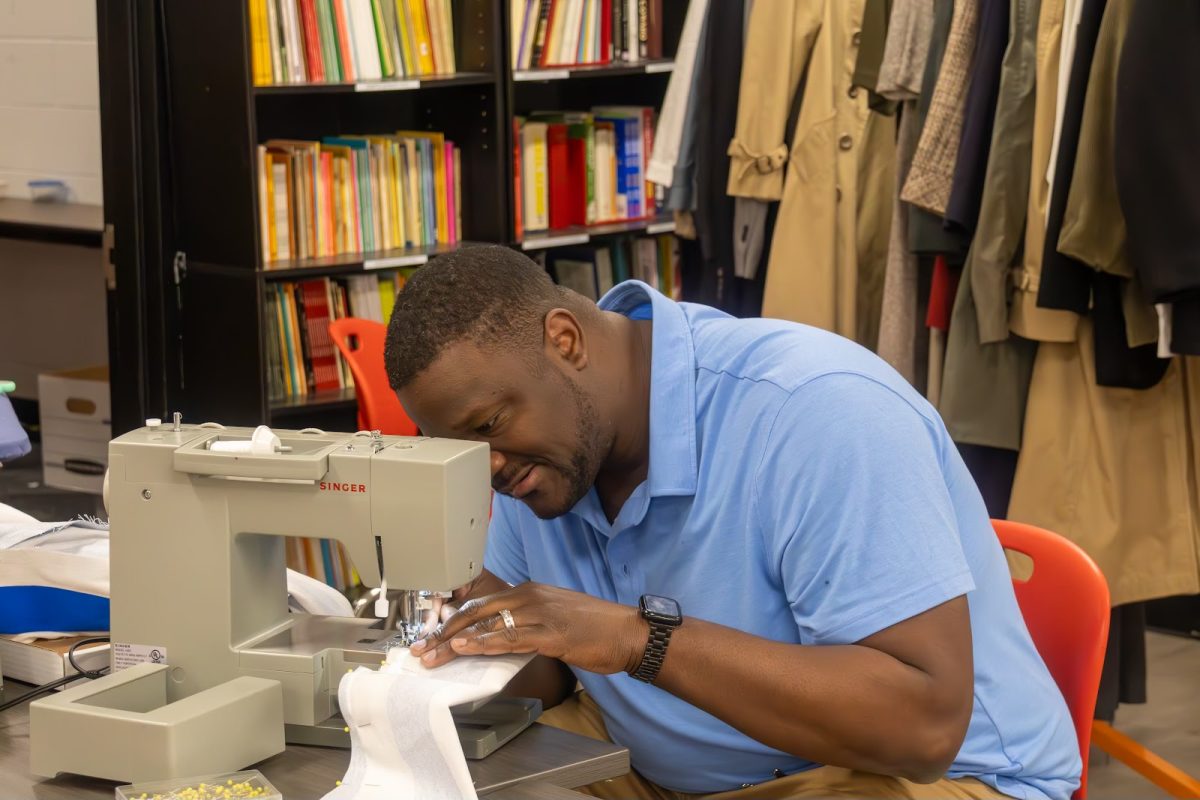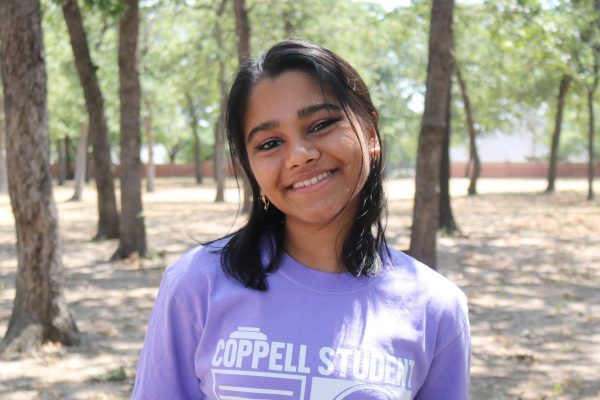C104 presents an assortment of decorations that students can get lost in: chemistry element posters that decorate the walls, animal hides of rodents that lay on the teacher’s desk and the lab safety goggles in the fume hood.
However, students are not focused on any of that. Their eyes are transfixed on the chocolate chip cookie on their desk. With a fork in their left hand and a spoon in their right, their brows furrow as they lay out a plan.
Twelve minutes on the timer: three-two-one-go!
As the class furiously begins to remove the chocolate chips from their cookie, they count the chocolate chips (‘iron ore’) from their cookie (‘mining site’).
Amidst the chocolatey chaos are laughs and giggles. Time spent within C104 does not feel like school; the class is a portal that takes students to new worlds of environmental knowledge.
It is these activities found frequently in Coppell High School chemistry and AP Environmental Science teacher Joshua Kinman’s classroom. In early January, Kinman introduced another project: designing a sustainable city.
“The unit we’re in currently – Unit 5 – is always such a grind,” AP Environmental Science teacher Maxx Lazos said. “It’s usually not the most fun unit for teachers and students alike. When he pitched the idea of the project, it was an all-encompassing way to look at the standards for the AP exam while simultaneously exercising students’ creativity.”
Kinman’s tendency to incorporate the real world into science mirrors the past in which he was brought up: the rural town of Millsap, Texas.
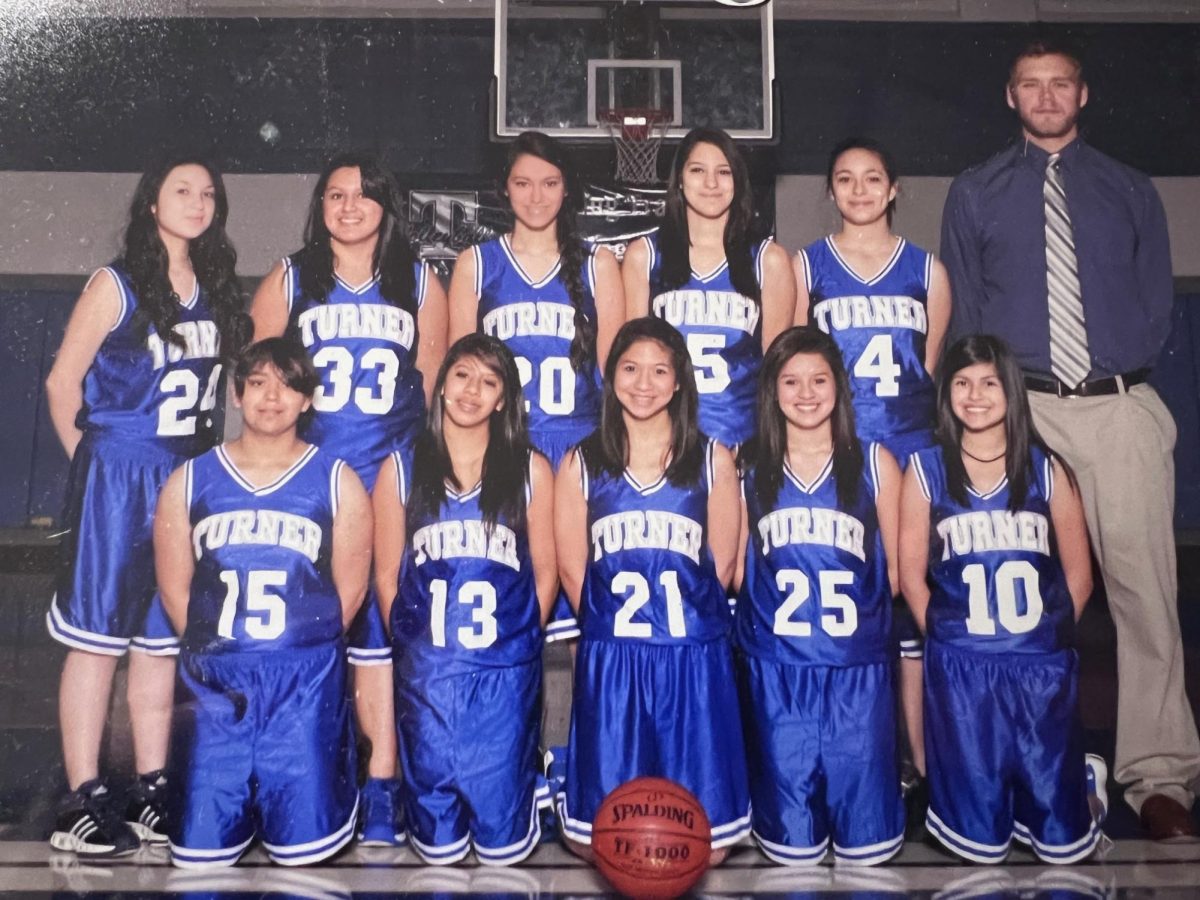
“I graduated from 50 people in my class which was relatively small,” Kinman said. “Growing up there, there was lots of land. Everything I did was outside, so I would run through the woods, mow lawns, work on farms and always play outside. That was where my love for nature and desire to be an environmental science teacher really started.”
From a young age, Kinman understood the importance of knowledge. His innate curiosity was present within his childhood.
“Growing up in the 90s and being in a small town was like a box,” Kinman said. “There’s no new ideas. This is how we do things, and that’s it. No one thinks about what they’re doing because that’s the way it’s always been. I realized that at an early age.”
After graduating as salutatorian from his class, Kinman attended Weatherford College as a biology major on a two-year scholarship. Afterwards, in 2003, he attended the University of North Texas.
“I wondered what I wanted to spend my money and time knowing,” Kinman said. “I chose biology because I liked medicine and thought I might pursue something in the medical field.”
Channeling his innate passion for teaching and knowledge, Kinman decided to become a teacher upon recognizing the shortage in the profession.
“At that point in time, there was a huge need for science teachers around this area,” Kinman said. “UNT sent letters explaining how to be a teacher. I read that letter and wanted to be a teacher. Growing up in church, I found myself with a lot of teaching roles. I decided to do it for a little while.”
A little while soon turned into 14 years. Yet Kinman vividly recalls his first memory as a teacher.
“My first school was R.L. Turner, and I was nervous,” Kinman said. “I was teaching a Texas Assessment of Knowledge and Skills science class to help teach students who had failed their TAKS science test. I’ll never forget: as I was introducing myself, this girl said ‘we’re gonna eat you alive.’”
Kinman’s patience and kindness towards all his students, regardless of their background, is apparent. Kinman entertains all questions without judgment, encouraging students to embrace their curiosity.
“In some classes, you might feel like you’re making the lesson longer by asking questions,” senior Zahra Shaikhali said. “But, Kinman appreciates questions. It makes me more willing to ask them. Regardless of how boring the material seems at first, he always manages to make it interesting. It makes me want to learn more.”
Kinman has a wide range of knowledge in the sciences. Through his biology and chemistry education, physics experience at Carrollton Creekview High School and chemistry and environmental science positions at Coppell, Kinman continues to foster connections between diverse topics. It is this knowledge that lets him explain his material with such ease.
“When we were learning about carbon cycles, I remembered learning biology,” Shaikhali said. “He is able to connect our content to our own experiences and current events. It’s amazing how the things we think don’t have an impact on us really do.”
Follow Anushree De (@anushree_night) and @CHSCampusNews on Twitter.



